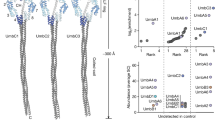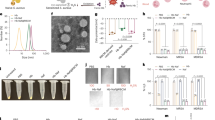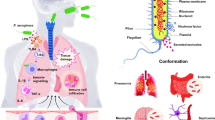Abstract
IN 1936, Henriksen1 isolated a Gram-negative rod from the human respiratory tract. This bacillus hæmolysed rabbit blood and was called Bacterium haemolysans. In 1957 a Gram-negative cocco-bacillus (now called 1092 of the National Collection of Dairy Organisms) was isolated from a blood agar plate of a swab of a cow's teat. This culture was hæmolytic and on an ox-blood agar plate the colonies, on superficial examination, might be confused with those of Staphylococcus aureus, because the hæmolysis resembled that produced by β-toxin.
This is a preview of subscription content, access via your institution
Access options
Subscribe to this journal
Receive 51 print issues and online access
$199.00 per year
only $3.90 per issue
Buy this article
- Purchase on Springer Link
- Instant access to full article PDF
Prices may be subject to local taxes which are calculated during checkout
Similar content being viewed by others
References
Henriksen, S. D., Skr. Norske Vidensk Akad. (Math. natur klasse I), 2, 158 (1936).
Mattick, A. T. R., Cheeseman, G. C., Berridge, N. J., and Bottazzi, V., J. App. Bact., 19, 310 (1956).
Cheeseman, G. C., Berridge, N. J., Mattick, A. T. R., and Bottazzi, V., J. App. Bact., 20, 205 (1957).
Author information
Authors and Affiliations
Rights and permissions
About this article
Cite this article
GARVIE, E., CHEESEMAN, G. Alcaligenes haemolysans . Nature 181, 1540–1541 (1958). https://doi.org/10.1038/1811540a0
Issue Date:
DOI: https://doi.org/10.1038/1811540a0
Comments
By submitting a comment you agree to abide by our Terms and Community Guidelines. If you find something abusive or that does not comply with our terms or guidelines please flag it as inappropriate.



